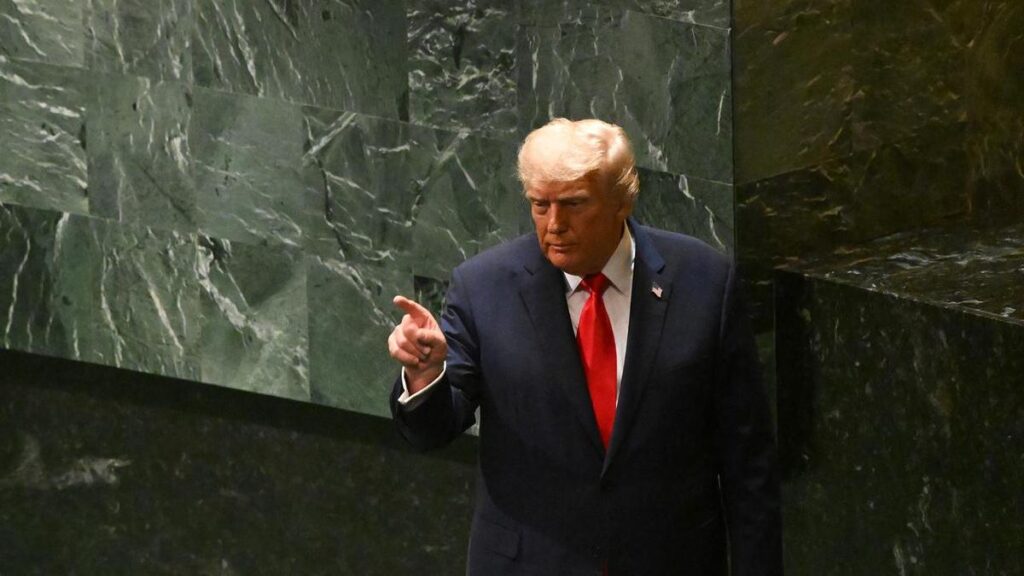
US President Donald Trump delivered a combative speech at the United Nations General Assembly on September 26, 2023, where he criticized global leaders and advocated for a reduction in migration and a shift away from climate change initiatives. The 56-minute address reflected his longstanding critiques of the UN and featured a range of contentious statements. Attendees offered polite applause as he exited the chamber.
Much of Trump’s speech focused on two primary issues: immigration and climate change. He presented his administration’s approach to immigration as a model for other nations, arguing that rampant migration threatens national stability. “I’m really good at this stuff,” he asserted, adding, “Your countries are going to hell.” Human rights advocates contend that many migrants are in search of better opportunities and safety.
On climate change, Trump labeled it a “con job,” advocating for increased reliance on fossil fuels. This stance contradicts the overwhelming scientific consensus that human-induced climate change poses a significant threat to global stability. “Immigration and their suicidal energy ideas will be the death of Western Europe,” he claimed, emphasizing his belief that current policies are unsustainable.
Controversial Statements and International Relations
Trump’s remarks extended to his views on foreign policy, particularly regarding the ongoing conflict in Ukraine. He criticized European leaders for continuing to purchase Russian oil, stating, “They’re funding the war against themselves.” He called for a unified economic response against Russia, suggesting that if Russia does not negotiate peace, the United States would impose “a very strong round of powerful tariffs.” He insisted that European nations must adopt similar measures for them to be effective.
During his speech, Trump also addressed the Israel-Palestine conflict, rejecting calls from world leaders to endorse a Palestinian state amidst Israel’s military operations in Gaza. He argued that such a move would reward groups like Hamas, which he characterized as terrorists. He reiterated the importance of securing the release of hostages held by Hamas, underlining his administration’s position on the issue.
Later, Trump met with Ukrainian President Volodymyr Zelenskiy, who sought increased support from the US in countering Russian advances. When questioned by reporters about NATO’s potential military response to Russian aircraft in their airspace, Trump responded affirmatively, stating, “Yes, I do.”
Trump’s approach has been met with mixed reactions. European leaders have attempted to stabilize relations with him, particularly in the context of the war in Ukraine. Previously, at a NATO summit in June, European leaders expressed mutual support, but Trump’s latest remarks may complicate those dynamics.
Personal Grievances and UN Infrastructure
In addition to political discourse, Trump shared personal grievances about his experience at the UN. He recounted a moment when he and First Lady Melania Trump became briefly stranded on a malfunctioning escalator at UN headquarters and mentioned issues with his teleprompter during the speech. “These are the two things I got from the United Nations – a bad escalator and a bad teleprompter,” he remarked, injecting a note of humor into an otherwise contentious address.
As Trump’s administration prepares to propose significant changes to asylum policies at the UN later this month, the implications of his remarks could reverberate through international relations, particularly concerning humanitarian frameworks established in the wake of World War II. The responses from global leaders will likely shape the ongoing discourse surrounding these critical issues.







